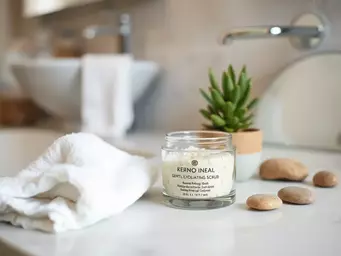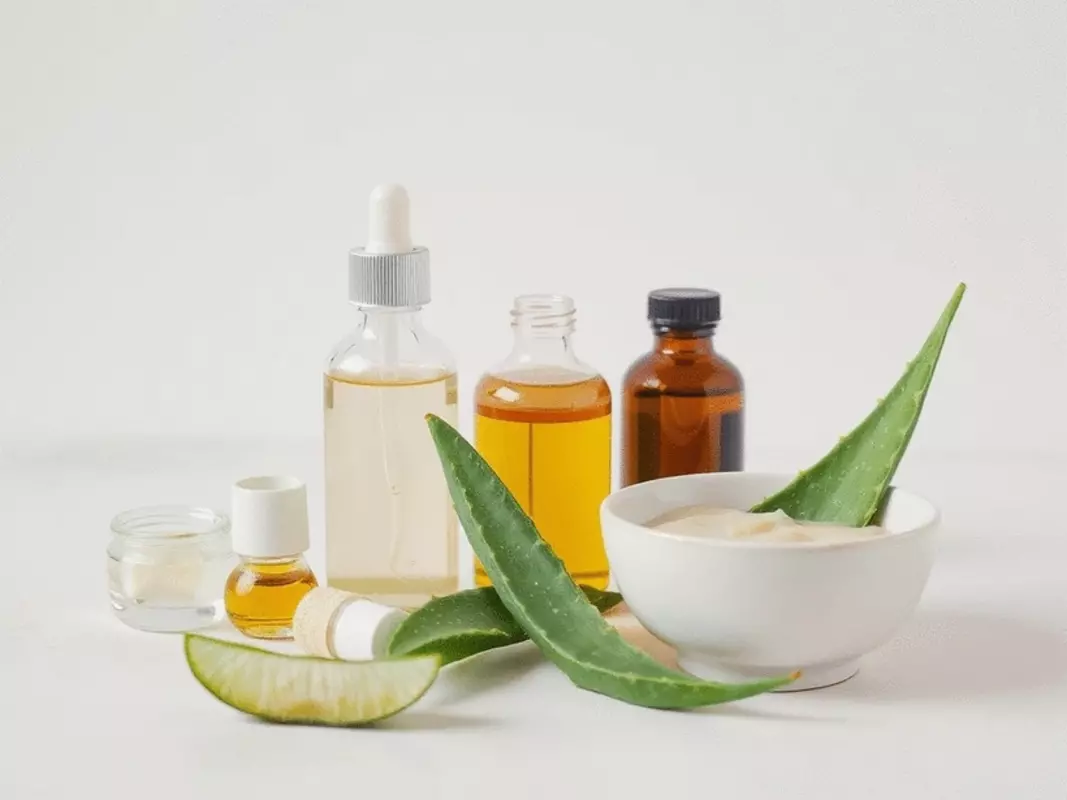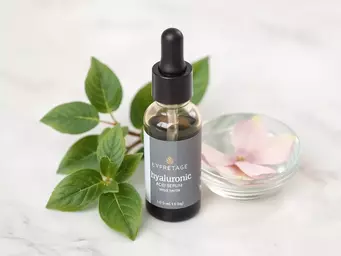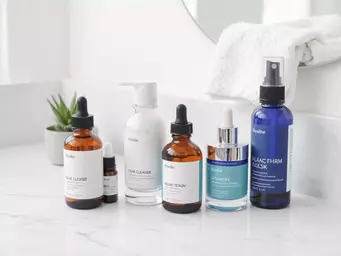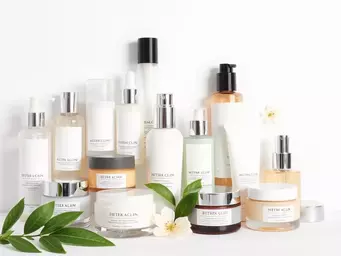Soothe Acne with Natural Ingredients
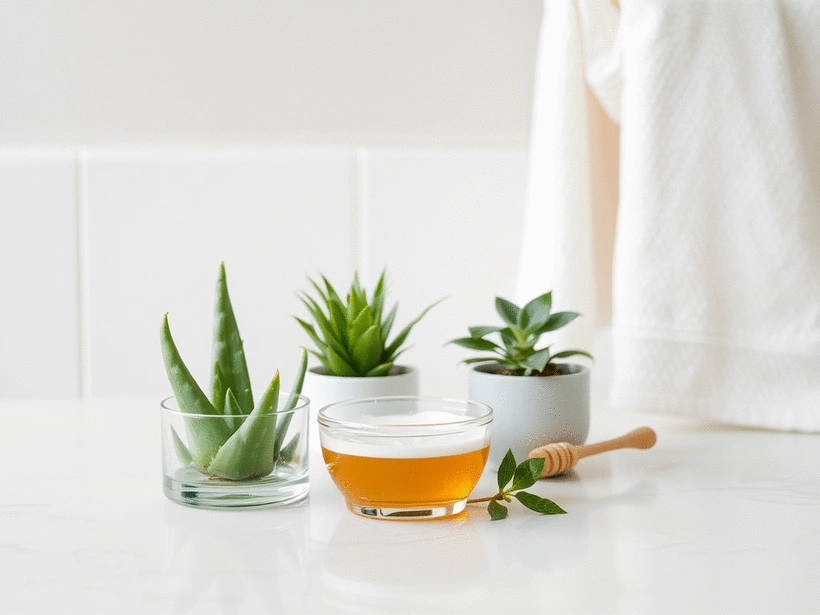
Did you know that managing dry acne-prone skin can feel like walking a tightrope? Balancing hydration and acne treatment is crucial for achieving a clear complexion. Here are some key insights that will help you navigate this challenging skincare journey.
What You Will Learn
- Dry acne skin results from a compromised moisture barrier, leading to both dryness and breakouts.
- Key ingredients such as hyaluronic acid and glycerin can hydrate your skin without clogging pores.
- Maintaining a consistent skincare routine is essential to improving the overall health and appearance of your skin.
- Sun protection with zinc oxide is crucial for soothing inflammation and preventing further skin damage.
- Consulting with a dermatologist can provide personalized treatment options for your specific skin concerns.
- Natural ingredients like aloe vera and argan oil can complement your routine and foster skin health.
Key Strategies for Dry Acne Skin Management
Understanding the interplay between hydration, active ingredients, and protection is crucial for managing dry, acne-prone skin. This visual highlights core components for effective long-term care.
Key Ingredients for Dry Acne
- Hyaluronic Acid: Hydration
- Glycerin: Moisture retention
- Aloe Vera: Soothing & healing
- Niacinamide: Barrier support
Sun Protection: Zinc Oxide Benefits
- Reflects UV light
- Soothes inflammation
- Broad-spectrum protection
- Gentle for sensitive skin
Natural Solutions to Explore
- Squalane: Mimics natural oils
- Argan Oil: Rich in fatty acids
- Green Tea Extract: Antioxidant
- Jojoba Oil: Balances sebum
Signs of Skin Improvement
- Increased hydration, less tightness
- Fewer, milder breakouts
- Reduced redness & inflammation
- Smoother makeup application
Understanding Dry Acne Skin: Challenges and Solutions
Have you ever found yourself stuck between the struggle of dry skin and acne? You’re not alone! Many individuals face the challenge of managing both conditions simultaneously. At Dry Acne Solutions, we understand the unique complexities of dry acne skin and the impact it can have on your confidence. Let’s explore what dry acne skin is and discover effective strategies to tackle it.
So, what exactly is dry acne skin? It occurs when the skin is both flaky and prone to breakouts, often due to a compromised moisture barrier. This can result from various factors such as weather changes, harsh products, or even hormonal fluctuations. The key here is to address both dryness and acne without exacerbating either condition. Understanding this balance is essential for effective skincare.
What is Dry Acne Skin and Why Does It Occur?
Dry acne skin can feel like an endless cycle of frustration. When our skin lacks moisture, it can trigger an overproduction of oil, which may lead to clogged pores and breakouts. This is further complicated by the use of drying products intended to combat acne, causing a vicious cycle. By recognizing how these factors interconnect, we can develop a targeted approach to restoring balance.
Some common causes of dry acne skin include:
- Environmental factors such as low humidity or harsh winters.
- Using the wrong skincare products that strip moisture.
- Underlying skin conditions, such as eczema or psoriasis.
- Dietary choices lacking essential fatty acids.
Understanding these factors is crucial. With the right knowledge, it’s possible to choose effective treatments that will not only combat acne but also hydrate and nourish your skin.
The Importance of Choosing the Right Ingredients
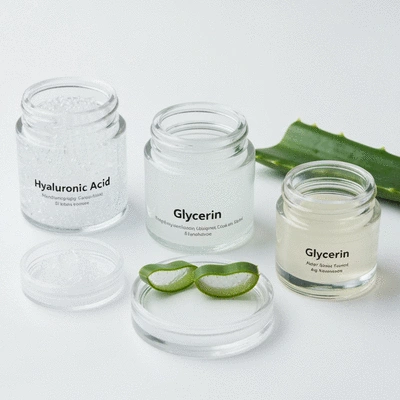
Using the right ingredients can make all the difference in managing dry acne skin. At Dry Acne Solutions, we emphasize the power of hydration and gentle, non-comedogenic ingredients. This means selecting products that hydrate without clogging pores. Remember, moisture is your skin’s best friend!
Here are some key ingredients to look for:
- Hyaluronic Acid: Attracts moisture to the skin and keeps it hydrated.
- Glycerin: A humectant that draws moisture from the air.
- Aloe Vera: Soothes and hydrates while providing anti-inflammatory benefits.
- Niacinamide: Reduces inflammation and supports the skin barrier.
By incorporating these ingredients into your routine, you can effectively combat dryness while addressing acne concerns. It’s about finding that perfect balance to achieve healthy, glowing skin.
Pro Tip
When managing dry acne skin, consider introducing a hydrating facial mist into your routine. A mist containing ingredients like rose water or aloe vera can provide an instant boost of hydration throughout the day, helping to maintain your skin’s moisture balance without adding heaviness. Keep it handy to refresh your skin, especially in dry environments!
Long-Term Care for Dry Acne Skin: Maintaining Balance
Maintaining a consistent skincare routine is essential for individuals dealing with dry acne skin. Over time, you may notice significant improvements in your skin's overall health and appearance. But how do you know when you've made progress? Let's explore some signs of improvement and discuss when it might be time to seek professional help.
Signs of Improvement and When to Seek Professional Help
- Your skin feels more hydrated and less tight.
- Breakouts occur less frequently and with reduced severity.
- The redness and inflammation diminish over time.
- Makeup applies more smoothly and your skin tone appears more even.
If you're experiencing these positive changes, congratulations! You're on the right path. However, if you notice persistent issues such as painful cysts, extreme dryness, or worsening irritation despite your efforts, it may be a sign to consult with a dermatologist. Remember, I’m here to help at Dry Acne Solutions—don’t hesitate to reach out!
Incorporating Zinc Oxide for Sun Protection in Acne Treatments
Sun protection is a crucial element in any skincare routine, especially for those with dry acne-prone skin. Incorporating zinc oxide into your regimen can provide dual benefits: it protects against UV rays while also soothing inflammation. Unlike chemical sunscreens, zinc oxide sits on the skin's surface and reflects UV light, making it an excellent choice for sensitive skin types.
- Look for broad-spectrum sunscreens with at least 20% zinc oxide.
- Apply sunscreen every morning, even on cloudy days.
- Reapply every two hours if you're outdoors for extended periods.
By making zinc oxide a part of your daily routine, you not only shield your skin from the sun but also help reduce the chance of flare-ups caused by UV damage. This is a simple yet effective step toward achieving and maintaining a balanced complexion!
Take Control of Your Skincare Journey
Embarking on a skincare journey can be daunting, but remember—you’re not alone! At Dry Acne Solutions, I encourage you to take control of your skincare by exploring options that suit your unique needs. Let’s discuss what to expect when consulting with a dermatologist.
Consulting with a Dermatologist: What to Expect
When you decide to see a dermatologist, it's a step toward understanding your skin better. During your consultation, they will likely:
- Review your medical history and specific skin concerns.
- Conduct a physical examination of your skin.
- Recommend personalized treatment options, which may include prescription products.
- Provide guidance on lifestyle changes that can impact skin health.
It’s important to be open about your skincare routine and any products you've been using. This will help your dermatologist tailor a plan that’s effective for your dry acne skin.
Encouragement to Explore Natural Solutions for Dry Acne Skin

While professional guidance is invaluable, exploring natural solutions can also be a game changer for dry acne skin. Ingredients like aloe vera, green tea extract, and jojoba oil not only nourish your skin but also provide calming effects. For further reading on effective natural treatments for acne, you can consult resources such as EBSCO's research on natural treatments for acne. Don't hesitate to mix and match—your skin might just thank you for the experimentation!
- Start with one natural ingredient and observe how your skin responds.
- Document any changes in your skin's texture or appearance.
- Be patient—natural solutions often take longer to show results, but they can be gentle on your skin.
Your journey to healthy skin is personal, and I’m here to support you at every step. Share your experiences and let’s celebrate your successes together!
Understanding the Benefits of Squalane and Argan Oil in Skincare
Lastly, consider incorporating squalane and argan oil into your routine. Both ingredients are known for their moisturizing properties while being lightweight and non-comedogenic. Squalane mimics your skin's natural oils, making it a great hydrator, while argan oil is rich in essential fatty acids that promote skin elasticity. For more information on the beneficial roles of various ingredients in skincare, including those that support skin barrier function, you might find this Frontiers in Medicine article on topical ingredients for skin barrier improvement insightful. Additionally, the PMC NCBI article on the role of nutrition in acne management highlights the importance of diet and certain natural oils, such as argan oil, in promoting overall skin health and managing acne.
- Use squalane as a base layer under your moisturizer for added hydration.
- Apply argan oil on dry patches to lock in moisture.
- These oils can be combined with other treatments for enhanced benefits.
Taking the time to understand and utilize these ingredients can significantly improve your skincare routine, leading to a more balanced and radiant complexion!
Frequently Asked Questions About Dry Acne Skin
- Q: What causes dry acne skin?
- A: Dry acne skin occurs when your skin's moisture barrier is compromised, leading to both dryness and breakouts. This can be caused by factors like environmental changes, harsh skincare products, and hormonal fluctuations.
- Q: What key ingredients should I look for in skincare products for dry acne?
- A: Look for hydrating and non-comedogenic ingredients such as hyaluronic acid, glycerin, aloe vera, and niacinamide. These help to moisturize the skin without clogging pores and can reduce inflammation.
- Q: How can I tell if my dry acne skin is improving?
- A: Signs of improvement include increased hydration, less skin tightness, fewer and milder breakouts, reduced redness and inflammation, and smoother makeup application.
- Q: Why is zinc oxide recommended for sun protection with dry acne skin?
- A: Zinc oxide provides broad-spectrum UV protection by reflecting sunlight and also helps to soothe inflammation, making it a gentle and effective choice for sensitive, acne-prone skin.
- Q: When should I consult a dermatologist for dry acne?
- A: It's advisable to consult a dermatologist if you experience persistent issues like painful cysts, extreme dryness, or worsening irritation despite your consistent skincare efforts.
- Q: Are natural solutions effective for dry acne skin?
- A: Yes, natural ingredients like aloe vera, green tea extract, squalane, and argan oil can complement your routine by nourishing the skin and providing calming effects. They can improve skin elasticity and hydration while balancing sebum.
Recap of Key Points
Here is a quick recap of the important points discussed in the article:
- Dry acne skin is characterized by a flaky texture combined with breakouts, often due to a compromised moisture barrier.
- Key ingredients to look for include hyaluronic acid, glycerin, aloe vera, and niacinamide to hydrate and soothe the skin without clogging pores.
- Maintaining a consistent skincare routine can lead to significant improvements in hydration, reduced breakouts, and overall skin health.
- Incorporating zinc oxide for sun protection can help soothe inflammation while protecting against UV rays.
- Consulting with a dermatologist can provide personalized treatment options and strategies tailored to your unique skin needs.
- Natural solutions, such as aloe vera and jojoba oil, can also complement traditional treatments for dry acne skin.


